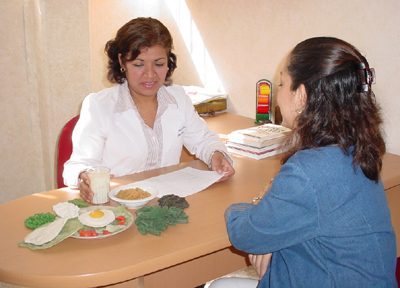 Mise en place is a French term that is commonly used in the field of gastronomy. It literally means to place or put in place and can refer to any culinary preparation process in which it is necessary to establish a certain order of the ingredients that are going to be used to prepare a recipe. In gastronomic language, a mise en place is expressed with the acronym MEP and can refer to the preparation of a dish, a cocktail or the service of a restaurant. In any case, a mise en place implies a very broad technical knowledge in the different professions related to gastronomy.
Mise en place is a French term that is commonly used in the field of gastronomy. It literally means to place or put in place and can refer to any culinary preparation process in which it is necessary to establish a certain order of the ingredients that are going to be used to prepare a recipe. In gastronomic language, a mise en place is expressed with the acronym MEP and can refer to the preparation of a dish, a cocktail or the service of a restaurant. In any case, a mise en place implies a very broad technical knowledge in the different professions related to gastronomy.
The purpose of a mise en place is multiple
1) organize kitchen work in a proper way,
2) convey an image of professionalism,
3) give a good service to diners and
4) optimize time in preparations.
In this sense, a mise en place necessarily implies planning in a general sense, since it must be taken into account that in a restaurant or a cafeteria it is necessary to carry out a series of calculations (on the number of expected diners, the decoration of the tables or the distribution of the dishes).
The use of the concept in the French language
The concept mise en place in French is not used exclusively in gastronomic matters, but is a very common expression in everyday language. Thus, there may be a mise en place of a business project, a speech or a day of leisure, that is, in any activity in which it is necessary to prepare or organize something in advance. When the issues prior to organizing something (la mise en place) have already been organized, its staging is possible, which in French is known as mise en scène.
The French language in gastronomic terminology
 The concept of mise en place is a good example of the influence of French cuisine on international cuisine. The French terms we use are diverse, such as aperitif, confit, consommé, entrecote, fondue, mousse, pâté, tranche, cordon blue, etc. We must not forget, on the other hand, that words such as restaurant, gourmet or haute cuisine (haute cuisine) are equally French.
The concept of mise en place is a good example of the influence of French cuisine on international cuisine. The French terms we use are diverse, such as aperitif, confit, consommé, entrecote, fondue, mousse, pâté, tranche, cordon blue, etc. We must not forget, on the other hand, that words such as restaurant, gourmet or haute cuisine (haute cuisine) are equally French.
The influence of French cuisine goes beyond a specific vocabulary, as we must not forget that in 2010 French gastronomy was declared by UNESCO as Intangible Cultural Heritage of Humanity.
Photos: iStock - stockvisual / PeopleImages









